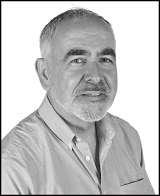 One of the great challenges of progress in the medical humanities is that of time and space. Interested clinicians tend not to work in the arts blocks of universities, and humanities scholars rarely frequent clinical settings.
One of the great challenges of progress in the medical humanities is that of time and space. Interested clinicians tend not to work in the arts blocks of universities, and humanities scholars rarely frequent clinical settings.
The hard graft of interdisciplinary research is ever more elusive without the opportunity to mingle, discuss, and challenge. Our university has taken a lead in hosting postgraduate seminars in medical humanities in Ireland. An interesting twist has been to provide a discussant from a different faculty to the speaker to promote interdisciplinary dialogue.
However, we have a serious issue with logistics. Travelling to and from a one hour seminar from my university teaching hospital to the humanities centre in the city centre campus would consume three hours out of the working day. Wholesale translocation of humanities scholars in the opposite direction remains a distant possibility.
Unsurprisingly, clinician attendance at the seminars has been duly attenuated, largely confined to those who had retired from practice. Taking a leaf from positive experiences in our hospital in developing the first telemedicine service in stroke in Ireland in 2009, we decided this year to trial interactive linkage of doctors in the teaching hospitals to the research seminars in the medical humanities.
As presenter for the first seminar I had to rely on the feedback of my colleagues as to the experience in the hospital seminar room. A kind-hearted group, they appeared favourably impressed, as was I for the next seminar when a lecturer in the French department examined the writing of Louis Wolfson with a psychiatrist as discussant.
On screen, we saw images of the front podium, heard the ambient sounds and chatter as participants arrived (no major indiscretions uncovered!) and then viewed the slides and heard the presenter in high quality sound.
The talk and subsequent discussion was fascinating. An American diagnosed with schizophrenia, Wolfson developed an intolerance of his native English language. His first book, Le Schizo et les langues, is written in what at first sight is French but hovers in a limbo between several languages, with phonetic borrowings for English phrases from a range of languages that he taught himself that would not be out of place in the works of the linguistic acrobats Myles na Gopaleen and Raymond Queneau.
This exploration provided deep insights into the lived life of mental health above and beyond our usual categorizations and definitions.
Although a technical glitch muted questions from the hospital base on this occasion, the ensuing discussions unpicked a range of fresh perspectives, including the reliability of his diagnosis and reflections on a range of writers who wrote in other languages by choice, with French appearing to lead the way for the Russian, Andreï Makine, and the erstwhile Anglophone Canadian, Nancy Huston. The occasion also facilitated email linkage of interested academics after the talk.
While these exchanges might seem esoteric to the lay public, they are no less important than molecular research in understanding and responding to the human condition. Just as technology supports technical aspects of healthcare, it is exciting to realize that it can also advance our understanding of meaning and narratives in health and illness.
Desmond O’Neill is a consultant geriatrician and co-chair of the Medical and Health Humanities Initiative of Trinity College Dublin.